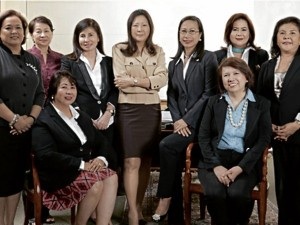I have a somewhat embarrassing story to tell about myself. Many of you may be a bit intrigued by this prospect because you have a sort of morbid fascination in the embarrassment of others. But I should point out that you may not grasp the full weight of my embarrassment unless you are an academic. You see, this is a story about graduate school, which is not the stuff from which exciting stories are often made. I apologize if I have now dampened your anticipation.
A little context. Most Ph.D. programs have two stages. A grad student spends a couple of years doing coursework before advancing to the second stage, which is doing the research that results in the dissertation. When one finishes the first stage, at least in the discipline of history, one then presents a research proposal to four scholars and asks if they would serve on a committee that would evaluate and give final approval to the dissertation.
The dissertation committee, then, is quite important. The Ph.D. degree depends upon it. One should choose scholars who will have high standards, but one also hopes that these academics, who sometimes come equipped with eccentric, cantankerous or quarrelsome personalities, will not throw up unnecessary obstacles in the process.
I had decided to write a dissertation on American evangelical missionaries. I was a bit worried about how some scholars might receive that topic, given that many academics believe that missionaries are inherently oppressive, imperialistic busybodies who have created great problems, if not outright injustices in the world. As a former missionary, I did not exactly share this scholarly perspective.
I secured the approval of three historians — two who studied evangelicalism and were evangelicals themselves. The third was a historian of American history who was quite affable. For the fourth position, I thought I ought to get someone who could bring a different perspective than mine, because I was told that this is often helpful as one tries to get a full perspective on things. After all, one should want to know if one has missed a gaping hole in one’s research, sticking out right there in chapter three, causing all the world to avert their eyes and blush slightly.
So I gave my proposal to a historian whom I thought fit the bill. She was not an evangelical or a Christian — she came from a Jewish background and I gathered that she was probably an agnostic. She taught women’s history at Notre Dame and I knew she had written a piece for the Radical History Review. She certainly would have a different perspective. But she also was a respected scholar who studied cultural issues in nineteenth century America, which was important for my research. And from what I knew of her, she seemed like a person of goodwill who encouraged grad students while still asking challenging questions.
Still, I was a little nervous about her reaction.
After reading my proposal she sent me back a rather long response, in which she wrote many gracious and helpful things. But she also raised a serious concern. I had written that I wanted to look at variations among evangelical missionaries by examining them from a range of angles, including denomination, race, region, and educational attainment. If I really wanted to examine evangelical missionaries from many different angles, she asked rather pointedly, why did I not even mention gender in my proposal? After all, she pointed out, nearly sixty percent of all evangelical missionaries by 1900 were women.
Oh. Yeah.
She was, of course, correct. If I really wanted to get a good handle on evangelical missionaries, I really needed to give careful consideration to women missionaries and issues of gender.
But here is the part that caused me to slap my forehead with the palm of my hand. (I’m almost sure I literally did that when I read her response.) I had been worried that she might find flaws and holes in my research proposal and it never occurred to me that THE WOMEN’S HISTORY PROFESSOR JUST MIGHT WANT ME TO CONSIDER WOMEN IN MY RESEARCH! What in the name of Susan B. Anthony did I think she would say when she read my proposal?
That was the embarrassing part.
There are some deeper questions here. Why, for instance, did I miss this? After all, I considered myself to be a somewhat intelligent person. I got pretty good GRE scores. I had earned a Masters degree and passed my comprehensive exams. I could say “I am a birthday cake” in five different languages.
And yet I could also be stupid. Maybe “dense” is a better word.
Was this thick-headedness just a problem with me?
Let me venture to suggest here that there was more at work than my own dim-witted personality (though one would not want to discount or minimize that very real factor). The other reality is that I had a blind spot when it came to gender. Many things fed that blind spot, including the reality that, even though I had met several females in my life and had even talked to some of them (like my wife, for instance), I had not been compelled very often to think about many aspects of the world from a female perspective. You see, there are still many ways in which being a male in our culture means you can view the world through a male lens without having a female question or challenge your thinking. Even if your wife is often quite helpful in this regard. In other words, thick-headedness is also a cultural problem.

Hmm. You won’t find any “news fit to print” on Catholicism, Buddhism, Pentecostalism, world Christianity, Islam, theology, or spirituality in the September 6, 2014 online edition of the New York Times, but there is this life-changing article on meals you can get in Portland, Oregon for $8 or under!
Now before you accuse me of promoting anti-male, anti-white political correctness, let me say that the blind spot problem is a problem for everyone, including liberals, academics, and those who drive Volvos. The New York Times, for instance, which is read by a lot of vegans and pointy-headed intellectuals, has a huge blind spot when it comes to religion. The Times, which has long proclaimed that it gives us “all the news that is fit to print,” has regular sections of the paper devoted to politics (U.S. and world), business, technology, science, health, sports, arts, fashion & style (fashion & style, I say!), automobiles, home & garden, travel and movies. It has no regular section on religion. Is there any better empirical evidence of a cultural blind spot about religion than that?
The blind-spot problem is not one of politics. It is not one of intelligence. It is a problem of human nature. As such, it is aggravated by cultural forces. I would venture to say, in fact, that American culture has a blind spot about blind spots.
There are two particularly strong cultural forces that have aggravated the problem for us for at least half a century: our beliefs about science and our beliefs about individual autonomy. There are reasons why we, especially if we are Christians, should think about this problem. And so, I plan to discuss this more in my next post.








